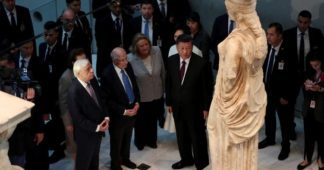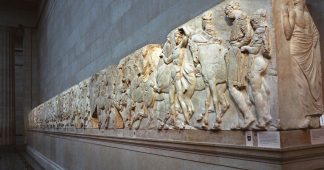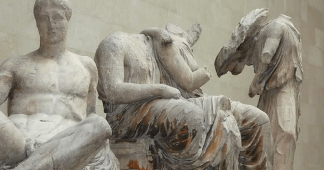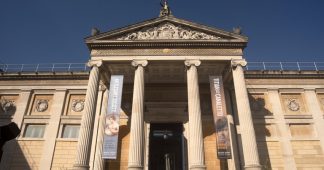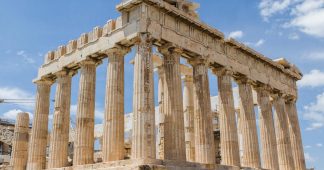Parthenon Marbles “not particularly inspiring… return them to Greece,” says ex Museum trustee
February 18, 2021
“Return the Elgin Marbles to Greece,’” they are not inspiration to anyone, sculptor and former British Museum trustee Sir Antony Gormley said. In an interview with the British Archaeology magazine, Gormley said that the museum has to detach from its ‘obsession with the classical world.’
As Greece disputes the presence of the stolen Parthenon Marbles and Gormley said: “I would be happy to return them.”
According to media reports, the British Museum should return the Elgin Marbles to Greece and make Africa the ‘absolute core of the museum’, Sir Antony Gormley has said.
The sculptor, who was one of the museum’s trustees from 2007 to 2015, also called for the institution to detach from its ‘obsession with the classical world’.
In an interview with British Archaeology magazine, he said the museum misrepresented certain areas of the world while under-representing others.
On the Elgin Marbles, which the museum says were acquired legitimately in the 19th century and Greece says were looted, he said: ‘I would be happy to return [them] because I think the present galleries are not a particularly inspiring place.’
Sir Antony, whose works include the Angel of the North sculpture in Gateshead, also described small displays of African artefacts in the museum’s basement as a ‘post-colonial iniquity’.
Last year the British Museum, which first opened to the public in 1759, found itself mired in the debate over the legacies of slavery fuelled by Black Lives Matter protests.
Published at www.keeptalkinggreece.com
We remind our readers that publication of articles on our site does not mean that we agree with what is written. Our policy is to publish anything which we consider of interest, so as to assist our readers in forming their opinions. Sometimes we even publish articles with which we totally disagree, since we believe it is important for our readers to be informed on as wide a spectrum of views as possible.
